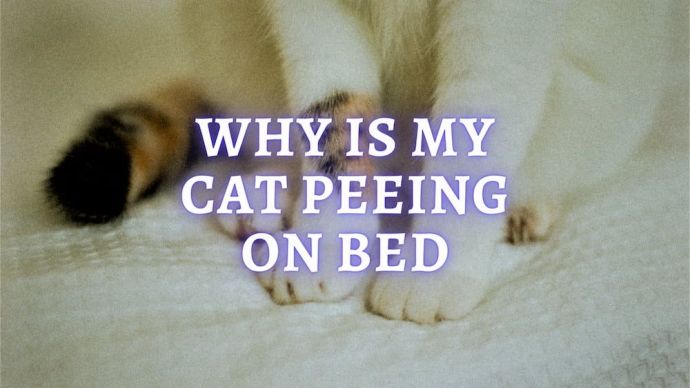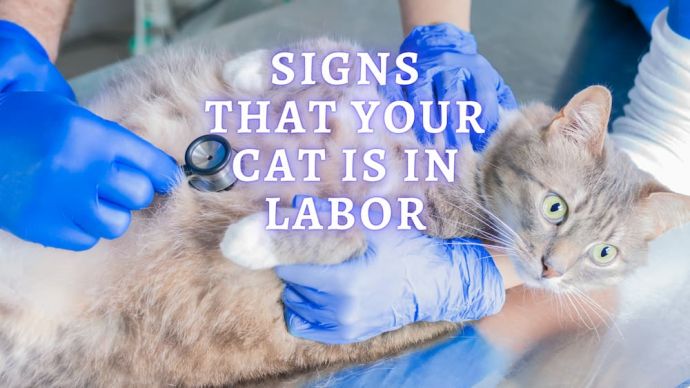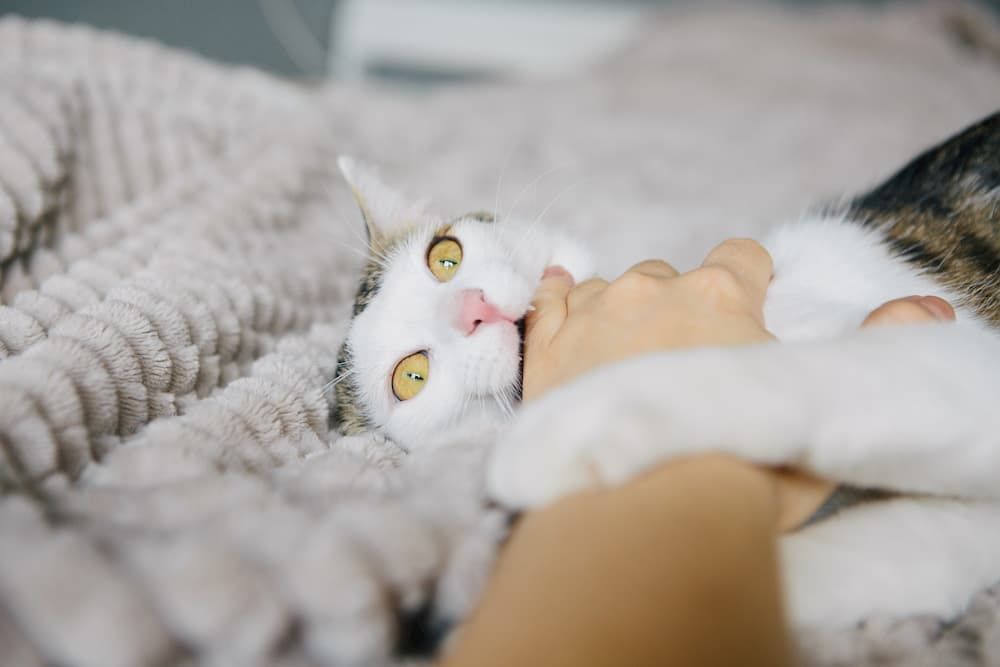Why Does My Cat Attack My Legs? 10 Reasons Why and What To Do About It (Vet-Approved Advice)
Written by:
Author: Vicki Smirnova
Vicki Smirnova is a professional writer and editor who adores animals and helps readers get along well with their pets. She has been working in digital media for more than 5 years and has great experience writing content about lifestyle, including pets. Vicki specializes in dog health and nutrition, cat feeding, dog training. She is an aquarium lover and is passionate to write about fish care at home. Also, Vicki headed several websites and worked as a news editor.
View all 245 articlesLearn about our editorial process and veterinary review board.
Reviewed by:
Veterinary review
by Dr. Linda Simon
Dr. Linda Simon is a veterinary surgeon working with seven years of experience. She is a fellow of the British Veterinary Association and specializing in animal medicine. Also, she has been the Woman magazine resident vet for the past two years and writes a regular column for them, focusing on pets and their health.
View all 30 articlesLearn about our veterinary review board
Viewed: 45879
Updated on: 07/25/2023
People get cats for interaction and joy, getting positive emotions, and introducing children to the world of animals. But no matter how much you love your feline friend, it probably attacks you periodically. Both medical and behavioral problems can cause this behavior. The problem is that you get bites and scratches, which are quite painful in themselves. Also, they can transmit certain diseases and cause nasty bacterial infections. If you don’t stop this type of behavior, it can start to pose a real danger to you. Cats have a bacterial environment in their saliva and mucous membranes and on the surface of their fur, claws, and skin. Pathogens can lead to infection, causing a pus discharge, swelling, and redness.
Reasons for Cat Attacks
Understanding the reasons for pet attacks and what you can do to stop such behavior will improve your relationship and communication with your cat. Perhaps the cat bites you because it wants to tell you something.
Here are some of the main reasons why do cats bite:
1. Children’s game
The kitten amuses itself with games; they like to track down a moving object and attack it. Also, kittens are too early weaned from their mother, and their siblings do not know the permissible limits of biting, so they are more likely to attack the owner and eat him. A kitten’s socialization period is from about two to eight weeks of age, and during this crucial stage, they learn how to interact appropriately from other cats as well as people.
Young kittens try to bite anything that moves, including their owners’ feet, when teething. This is normal behavior and does not require particular educational correction on the part of the owner. However, you can try to redirect this biting behavior by offering teething toys.
2. Bites and scratches of a pet in adolescence
During puberty, the pet’s behavior may change negatively. A cat throws itself on its feet and bites. This is how grown-up females and males show aggression and irritation to people. If you do not plan to breed, it is better to carry out castration or sterilization, depending on the sex of the animal. While there is no guarantee that this would improve aggression, it generally proves beneficial when used in combination with training techniques and other methods.
3. Hunting instinct
Attacking human feet, kittens, and adult cats realize their hunting instinct. Although this is natural, it is worth an owner correcting a furry pet’s behavior to protect their own limbs from scratches. Never punish a cat for this natural behavior. Instead, use positive reinforcement training. When the cat plays nicely and ignores feet, they are rewarded with praise and treats. As soon as any biting starts, we must completely ignore them; this means no talking to them or looking at them for at least 2 minutes. For most, this will drive them crazy, as their aim is to seek attention. They will soon learn that biting gets them nowhere.
READ MORE: Cat Scratching Ears
4. Boredom
Adult cats can attack their owners for lack of attention. The cat is forced to attract attention or find entertainment on its own if you do not play with your pet. Cats can bite because they want to diversify their daily activities somehow. Perhaps the cat attacks you because of a lack of toys and other types of stimulation that could occupy it. He may be bored, and you seem like an easy target for entertainment. An insufficient amount of interactive playing time can also cause pet attacks. A small problem can become a big one if you don’t stop the animal in time.
5. Sexual instinct
During mating periods, unsterilized cats may not be able to control their behavior. Regardless of gender, the pet is agitated continuously, so it can attack you for no reason.
6. Health problem
If the cat has never bitten you before and then suddenly started eating when you touch a particular place on the body, it may have something that hurts. Unfortunately, our pets can’t tell if they’re feeling ill, so when the pain comes, the cat can jump up and grab you. If you suspect that your kitty is not healthy — not happy, does not allow itself to be petted, and does not want to play — it is better to bring it to the veterinarian to detect the problem. Often, the issue is not something that an owner can quickly identify, such as a bad tooth, ear infection, or arthritis.
However, it should be remembered that these animals do not like people touching their bellies or the base of the tail — this is an instinctive behavior of protection, which you need to put up with.
7. Manifestation of love
Cats bite not only from pain or anger but also from love! In the wild, cats chew each other at the moment of courtship, as well as during friendly communication.
A cat’s “kiss” is usually not painful and won’t break the skin, because they have learned to measure their efforts in childhood, and is accompanied by tongue licking. It looks like this: lick, bite, lick again.
8. Stress is the cause of aggression
The cat bites and scratches your legs due to severe stress, anxiety, illness, or pain experienced by the pet. The cat may eat because it holds a grudge against you or one of your guests treated it with disdain. Stressful factors, such as the arrival of a new family member, rearranging furniture, or moving, can also cause aggression. A cat often bites a person’s feet when changing their residence because they are afraid. She may do this from fatigue, for example, after a long road trip or traveling with a pet.[1]
In this case, the owner must show patience and care to heal the animal to achieve psychological and emotional comfort.
Try to maintain a stable home environment for a cat and to establish a predictable routine to minimize stress. Promote calm by keeping a cat’s mind occupied with a combination of toys, puzzles, and activities.
9. Overstimulation
The cat may bite due to overexcitation from petting. This phenomenon is not uncommon in cats and is called pet-induced aggression. If the cat is not neutered, then this behavior is natural for him, as it corresponds to how male cat grabs the female cat with his teeth at the time of mating. They do not control this behavior. Also, the cause of bites can be a lot of unspent energy. The cat should be able to be actively awake, hunt (play), solve mental problems (how to catch a mouse? How to get food?) at least 6 hours a day. If the cat does not receive such mental and physical stress, then its energy will seek an outlet in other forms of behavior, including aggression.[3]
10. Frustration
Imagine your cat is sitting on the window and watching what is happening outside. Suddenly she sees a strange cat or other animals walking there. She immediately becomes very aroused, as she sees this as an encroachment on her territory, the cat adopts an aggressive posture, hisses, or growls. At this time, your second pet enters the room, and the excited cat attacks her aggressively. This is redirected aggression.
Redirected aggression occurs when a cat behaves aggressively towards a nearby animal or person that is not the immediate source of its aggression. Unpredictable and sometimes very violent, therefore dangerous, this aggression is one of the most common forms of feline aggression. It can have serious, life-changing consequences for the entire family. Often this behavior occurs when a cat sees an unfamiliar cat, but it can be caused by anything – a loud noise, a smell, a stranger, or any other source of discomfort.
Warning
It is not uncommon for people to have a hard time with bite and scratch-transmitted diseases, such as cat scratch fever. Cat scratch fever is a bacterial infection caused by Bartonella Henselae. It is transmitted via bites or scratches or from a cat licking an open cut on your skin. Those affected may feel unwell and develop a fever and enlarged lymph nodes. Reduce the risk of infection by washing any wound as soon as you can with soap and running water. If you feel unwell after receiving a scratch or bite from a cat, contact your doctor immediately for medical help.
Is my cat playing or being aggressive?
The cause of aggression may be ignoring the cat’s body language of the animal, says the cat behaviorist. Cats communicate with us with body signals or warning signs. When we stroke a cat, we can see that she is overexcited or that she has already stopped liking our caresses. In order to understand what a cat is saying, it is enough to study the signals of her body and pay attention to them. For example, if you pet a cat, and she stops purring, starts wagging her tail, looks back at your hand, and pulls her skin on her sides, this means that she already doesn’t like your caress and she asks to stop stroking her.[2]
How to Reduce the Cat’s Aggression
There are several recommendations to reduce the aggression of the cat and properly raise your pet.
Plan daily gaming sessions with your cat. These sessions should last about 10 minutes and should be held when the pet is in a playful mood. During the game, you can throw one of the cat’s favorite toys to the side. This way, you will protect your hands and feet from the pet and stimulate its innate instinct to chase prey and pounce on it.
1. The Best defense is offense
For your cat, the ankle is a smooth-moving target, especially if the pet doesn’t have any other toys or objects to play with. At the most unexpected moment, the cat can jump out of its hiding place and bite you on the ankle. When a pet eats your leg, don’t try to run or breakaway. This behavior is typical of prey, and your cat’s predator instincts will only make it bite you harder.
Instead, carefully try to push the cat. Since the prey usually does not move towards the predator, this action will confuse the pet. As soon as the cat realizes that you are not acting like prey, it will immediately let you go.
After release, stand still for a while and do not pay any attention to the cat. The pet will stop biting when you stop giving it the pleasure of catching you by the ankles.
2. Provide the cat with a stimulating environment
If the cat bites your feet is boredom and lacks activity, you should provide more games and walks for your pet. Regularly provide the cat with new objects to explore, such as empty cardboard boxes. You can also place climbing complexes such as cat trees or scratching posts in the cat’s favorite places to climb and play on them.
If the cat feels comfortable outside, you can buy or build an enclosure for it so that it can safely play in it in your garden.
3. Don’t punish the cat
Never hit or yell at a pet. Because of the punishments, the pet will become fearful and hostile towards you. Some cats even see discipline as a challenge rather than a deterrent.
4. Encourage good behavior
Cats will repeat the behavior that has positive consequences for them. Keep in mind that positive encouragement should be given when performing the right action so that the cat understands the Association between ethical behavior and receiving support.
Recommendations
- All cats have an instinct of a predator. However, with proper upbringing and training, the pet will understand that an attack on the owner has negative consequences.
- Kittens are more impressionable than adult cats, so it is much easier to stop a pet from attacking at a young age.
- Young children often do not understand the difference between the playful and aggressive behavior of a pet. If you have small children, explain to them the difference between the two practices. Monitor interaction with children and ensure the cat has plenty of time on its own.
- If your cat continues to try to attack you after you attempt to eradicate this behavior, contact your veterinarian and/or a local veterinary behaviorist for help.
People also ask
How do I stop my adult cats from attacking my legs?
To wean a cat from biting its legs, you should teach it from childhood that legs are not toys. As soon as the cat starts biting you, stop playing and go to another room. Use a stop word, such as “stop”. Over time, the pet will get used to it and will understand that after aggression, games with the owner end.
Why does my cats bite my legs unprovoked?
Cats have a highly developed hunting instinct. As a target, the animal can choose any moving object, including the legs and arms of the cat owners.
Why does my cat randomly attack my leg and bite me?
A pet may behave in this way out of boredom in order to attract attention. Among the reasons, experts also identified stress or illness of the pet, as well as sexual instincts and dominance. Stress can be associated with moving to a new place. A cat also becomes aggressive because something hurts her.
Why does my cat bites me and attack my leg?
An adult cat rushes to its feet from a hiding place and bites if it has nothing to do with itself. The pet is trying to attract attention and invites you to play. Give your cat more time: talk, stroke and play at least twenty minutes a day.
Conclusion
Depending on the mood, most cats can show their animal instincts in the form of hunting for the owner’s legs and arms, pushing away those who want to pet them. But you should not think that the pet does not love its master; this is just a manifestation of a strong-willed character. It should be noted right away that such seemingly harmless manifestations in cats should not be ignored completely. It is necessary to observe the animal and determine the real reason for such behavior. The cat’s desire to bite its owner can be called the main whim that should be looked at. Therefore, observing such cat behavior and cat body language, one should carefully study the habits and understand the reason for which the animal behaves in this way.
Article Sources:
- “Why Does My Cate Bite Me?” Cats Protection, 27 Mar. 2023, cats.org.uk/cats-blog/why-does-my-cat-bite-me.
- “Aggression in Cats.” ASPCA, aspca.org/pet-care/cat-care/common-cat-behavior-issues/aggression-cats.
- “Why Does My Cat Attack Me Unprovoked?” PetMD 27 Apr. 2023, petmd.com/cat/behavior/why-does-my-cat-attack-me-unprovoked.
 Cat Veterinary Tips Skin Allergies in Cats: Causes, Symptoms, and Treatment (Vet Advice)
Cat Veterinary Tips Skin Allergies in Cats: Causes, Symptoms, and Treatment (Vet Advice) - 521
- 0
 Cat Care Why Does My Cat Follow Me? Reasons Why Your Cat’s Following You Everywhere
Cat Care Why Does My Cat Follow Me? Reasons Why Your Cat’s Following You Everywhere - 195
- 0
 Cat Care Cat Peeing On Bed: Why Your Cat is Peeing on the Bed and How to Stop It?
Cat Care Cat Peeing On Bed: Why Your Cat is Peeing on the Bed and How to Stop It? - 591
- 0
 Cat Veterinary Tips Cat Stomach Gurgling: Vet Advice on Why is Your Cat Stomach Gurgling?
Cat Veterinary Tips Cat Stomach Gurgling: Vet Advice on Why is Your Cat Stomach Gurgling? - 36204
- 4
 Cat Veterinary Tips My Cat Lost its Voice: Can Cats get Laryngitis? (Vet Advice)
Cat Veterinary Tips My Cat Lost its Voice: Can Cats get Laryngitis? (Vet Advice) - 23498
- 13
 Cat Veterinary Tips Signs That Your Cat is in Labor: How to tell if a Cat is Pregnant?
Cat Veterinary Tips Signs That Your Cat is in Labor: How to tell if a Cat is Pregnant? - 14575
- 1






















